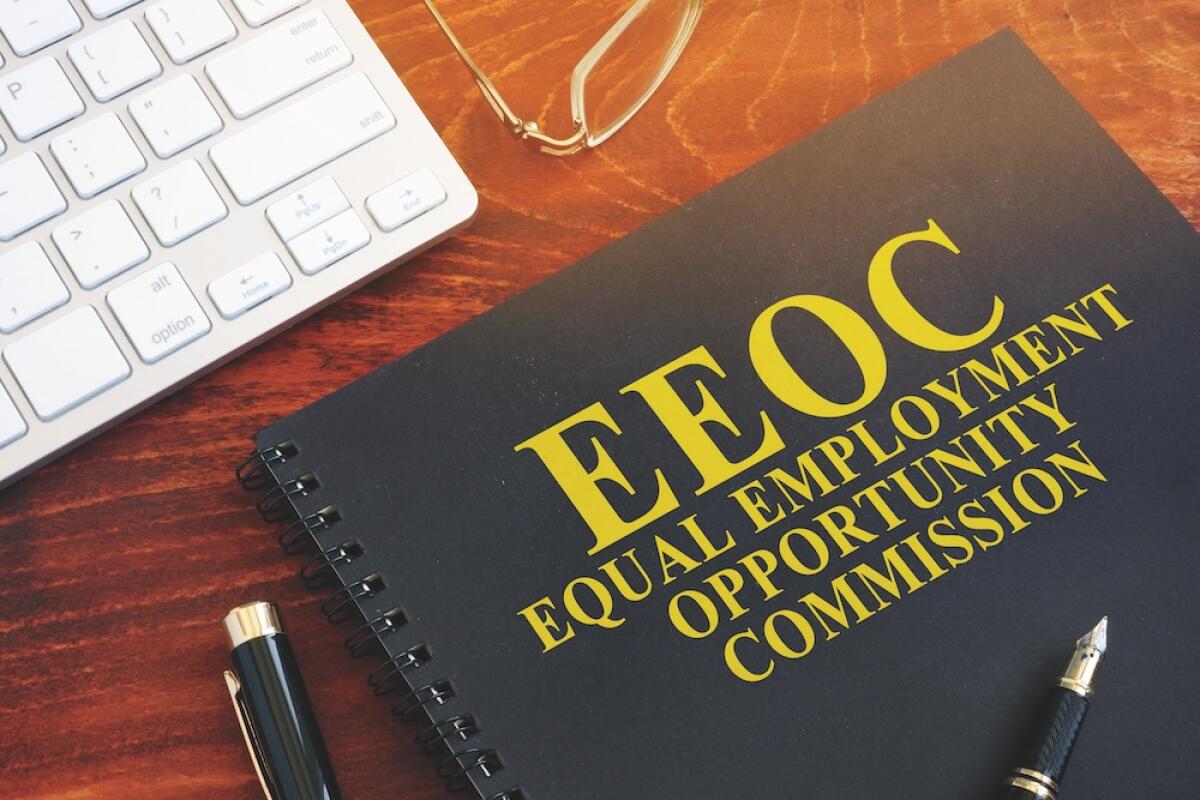EEOC Increases Litigation Activity as Discrimination Statistics Rise

The lawsuits increased by over half in 2023 and may increase even more in 2024.
- Share via
Last year, the U.S. Equal Employment Opportunity Commission (EEOC) filed 143 merits lawsuits, 25 of which were systemic, and resolved 98 suits obtaining over $22.6 million in monetary relief for victims of employment discrimination. The 143 suits represent an increase of more than 50% compared to the levels in 2022, and 2024 is on track to match or possibly exceed 2023.
“This reflects the agency’s efforts to enforce federal anti-discrimination laws through its affirmative litigation, appellate and amicus programs,” said EEOC General Counsel Karla Gilbride. “It details a continued commitment to impactful litigation that advances the Commission’s goals of remedying and preventing discrimination in the workplace. I’m also pleased stakeholders can now find information about EEOC’s litigation resolutions from last year and prior years through EEOC’s online Explore tool.”
Filing highlights include (note percentages may not add to 100% as some suits may have multiple allegations):
- In FY 2023, the EEOC filed 143 merits lawsuits, 25 were systemic suits and 32 were non-systemic class suits.
- The most frequently alleged bases of discrimination were retaliation (39.2%), sex (35%), disability (34.3%) and race (16.8%).
- At the end of FY 2023, the EEOC had 227 merits cases on its active district court docket, of which 95 (41.8%) were class or systemic cases.
- In FY 2023, the EEOC filed 10 briefs on appeal in Commission cases, seven as appellant and three as appellee, and one brief in opposition to interlocutory appeal.
Other statistics on workplace discrimination in 2024 include:
Gender discrimination According to the Pew Research Center, 42% of working women have experienced discrimination in the workplace due to their gender.
A survey by The Muse job board found that 41% of women have felt discriminated against based on their gender during a job interview. LGBTQI+ discrimination According to American Progress, half of LGBTQI+ adults report having experienced workplace discrimination or harassment because of their sexual orientation, gender identity, or intersex status in the previous year.
State charges Texas had the highest percentage of total U.S. charges at 10.2%, followed by Florida at 8.7%, Pennsylvania at 6.8%, California at 6.1% and Georgia at 6.0%. ©Vitalii Vodolazskyi / AdobeStock
Other Age discrimination Racial discrimination Retaliation Other 4.2% Age discrimination 15.6% Racial discrimination 28.6% Retaliation 51.6%
The EEOC filed 34 briefs as amicus curiae in private suits.
The EEOC defines systemic suits as pattern or practice, policy and/or class cases where the discrimination has a broad impact on an industry, profession, company or geographic location. Class suits seek relief for multiple aggrieved individuals.
Resolution highlights include:
The EEOC resolved 98 merits suits in FY 2023, recovering over $22.6 million for 968 individuals and achieved a successful outcome (settlement or favorable judgment) in 91% of all suit resolutions.
In FY 2023, the EEOC resolved 14 systemic suits, obtaining just over $11.7 million for approximately 806 individuals and significant equitable relief. Two selected systemic examples include:
ɕ In one case, the EEOC alleged that affiliated entities that own and operate 21 McDonald’s franchises subjected male and female employees to sexual harassment, resulting in the constructive discharge of some employees. The three-year consent decree provides for $1,997,500 to 41 individuals, along with equitable relief.
ɕ In another case, the EEOC alleged that a construction contractor subjected the two charging parties and other Black employees working as laborers at a construction site to racial harassment and retaliated against the charging parties. Black employees reported the harassment, but the employer did not investigate and instead terminated the two charging parties. The two-year consent decree provides for $1.2 million to 31 claimants, along with equitable relief.
In recognition of the 60th anniversary of the 1964 Civil Rights Act and the importance of highlighting civil rights history, the EEOC expanded its library of EEOC Explore data visualizations of aggregated charge data, workforce demographic data and limited employer-reported pay data to include selected litigation cases resolved in from 2019 to the present. The EEOC will continue to add data in future years.
Most Common Types of Discrimination Reported in 2023
According to WH Law, workplace discrimination cases have increased significantly in 2024, with the U.S. Equal Employment Opportunity Commission (EEOC) receiving over 500,000 calls and 81,055 new charges. EEOC Increases Litigation Activity as Discrimination Statistics Rise The lawsuits increased by over half in 2023 and may increase even more in 2024. L ast year, the U.S. Equal Employment Opportunity Commission (EEOC) filed 143 merits lawsuits, 25 of which were systemic, and resolved 98 suits obtaining over $22.6 million in monetary relief for victims of employment discrimination. The 143 suits represent an increase of more than 50% compared to the levels in 2022, and 2024 is on track to match or possibly exceed 2023.
“This reflects the agency’s efforts to enforce federal anti-discrimination laws through its affirmative litigation, appellate and amicus programs,” said EEOC General Counsel Karla Gilbride. “It details a continued commitment to impactful litigation that advances the Commission’s goals of remedying and preventing discrimination in the workplace. I’m also pleased stakeholders can now find information about EEOC’s litigation resolutions from last year and prior years through EEOC’s online Explore tool.”